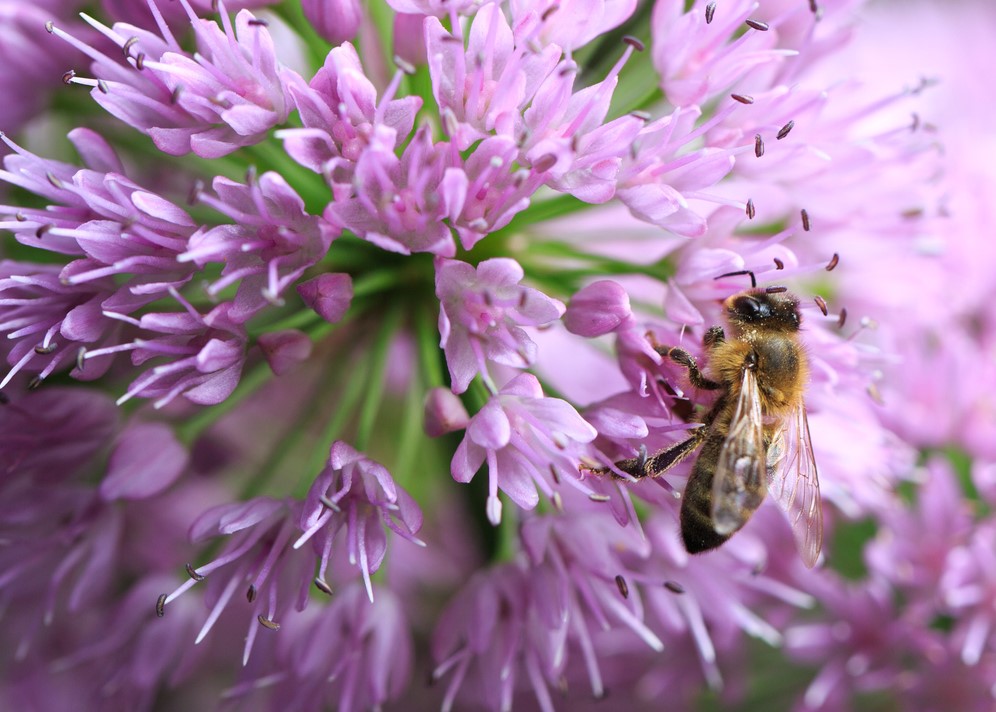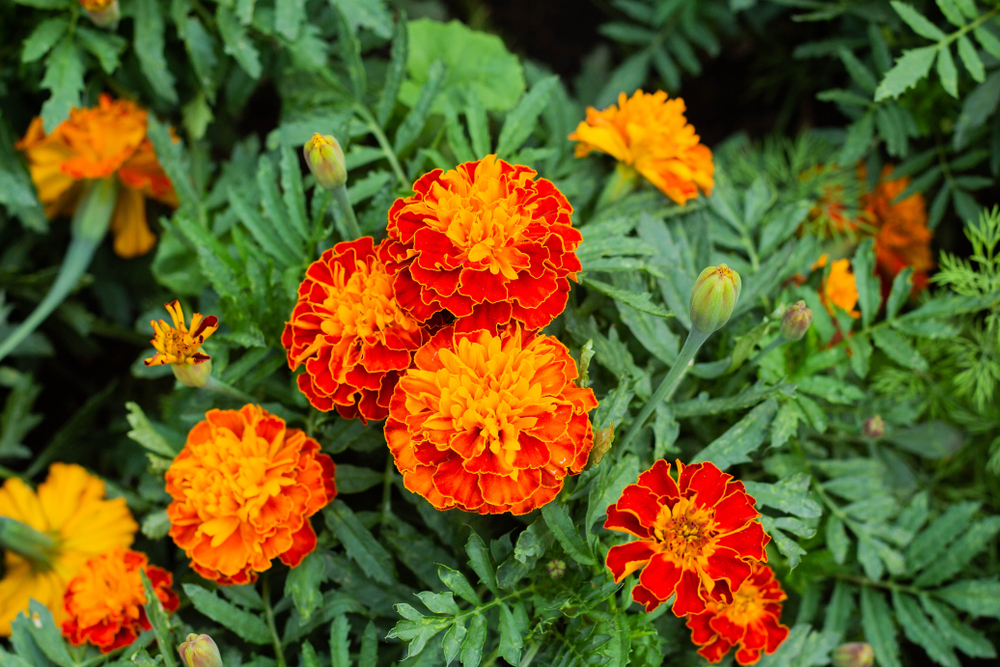Roses & Companion Planting
Companion planting is a form of gardening where different types of plants are in close proximity, which in turn benefits each other. Benefits could include some form of pest protection, attracting pollinators or making the plant less susceptible to disease.
Although modern roses are generally much more disease resistant, they can still suffer from pests and diseases such as aphids, which are sap-sucking insects such as greenfly and blackfly. Blackspot is another common rose disease which defoliates and weakens the rose. Companion planting is the perfect and organic way to reduce aphids and other common diseases in roses but choose plants that require similar care in terms of sunlight, watering and feed.
Below are some suggestions of perfect rose companion plants.
Alliums and members of this family, which include onions, garlic and chives, are especially useful companions when planted together with roses as they help roses combat aphids, black spot and they can also enhance the strength of the roses’ fragrance. They are also excellent at repelling weevil, borers and moles.
Alternatively, chopped garlic and onion peelings can be used as part of your soil preparation before you plant your roses.
Ornamental Alliums, with their violet flowers, are a perfect plant to intersperse with roses, complimenting roses perfectly whilst giving roses the benefit of their pest and disease deterrence.

Herbs such as parsley, spearmint and thyme are also helpful for reducing aphids in roses. Hardy Salvia (Sage) is especially good at attracting pollinators especially bees and hoverflies. Scented Geraniums come under this category too, a variety of Geranium whose leaves when brushed against, give of a scent. The additional advantage of companion planting herbs with roses is that you benefit from a range of fragrance in the garden too.
Flowers are an attractive addition to any rose garden but look out for plants that require similar care in terms of sunlight, watering and feed to roses.
Lavender and Nepeta (Catmint), for example, are perfect companions when planted with roses in terms of aesthetics, attracting pollinators and they also help to deter rabbits from nibbling away at your roses.
Yarrow is useful for attracting ladybugs who in turn eat any aphids that may be on your roses.
Marigolds help deter pests and they also they encourage strong growth in roses whilst Geraniums help to ward off aphids and rose beetles including Japanese Beetles. Lupins also are a classic companion plant with roses as they have roots which mine the soil better than roses can do. This has the effect of increasing the nitrogen content and also attracting earthworms, all which will encourage better rose growth.

Asters, Eryngiums, Salvias are all great for attracting insects and Alchemilla mollis is excellent for retaining moisture in rose beds.
Whether your taste is for a formal rose garden or a more contemporary mixed planting scheme, roses can thrive amongst other plants. Just remember to plant companions not too close to the base of the roses as roses need plenty of moisture and nutrients to thrive and avoid companions that provide too much shade or are known to have invasive roots or uncontrollable spreading.
